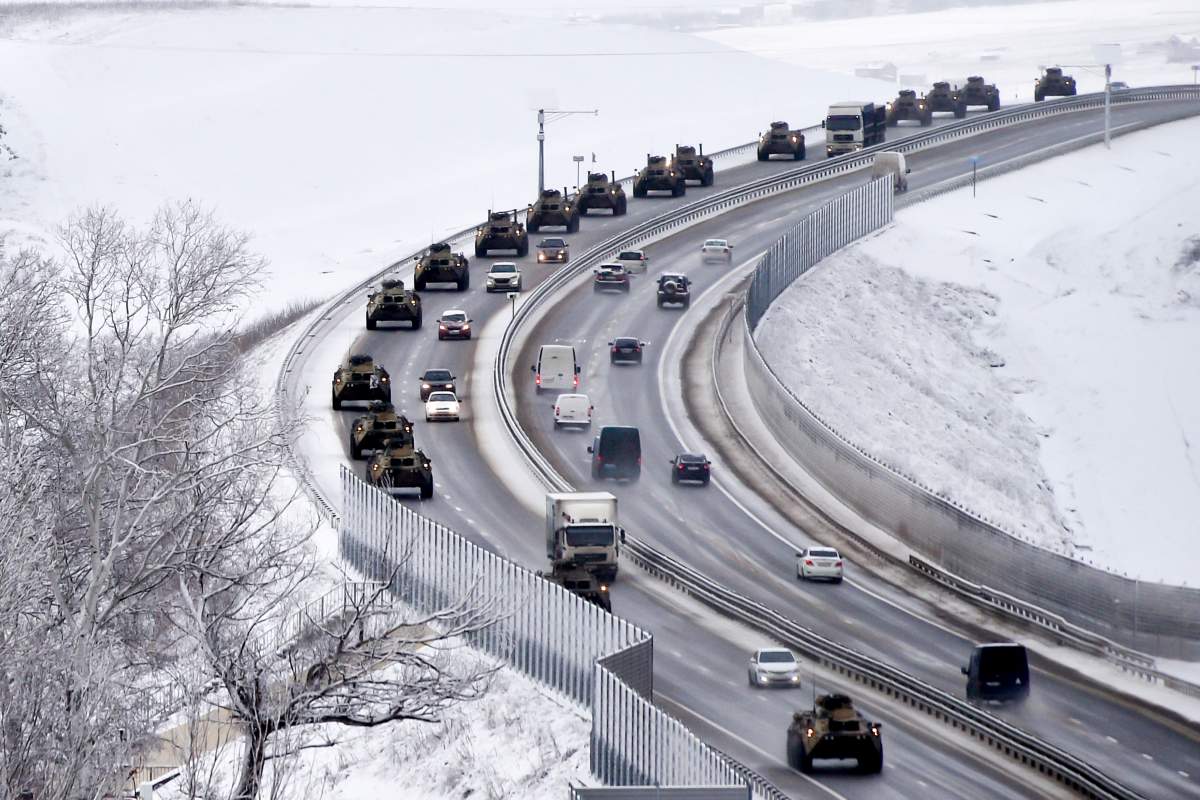Defence Minister Anita Anand says she expects to be able to unveil details “very shortly” about additional Canadian support for Ukraine as the country stares down the threat of Russian incursion.

In an interview with The West Block‘s Mercedes Stephenson, Anand reiterated the government’s commitment to extending Operation Unifier, which is the Canadian Forces training mission set to expire in March, as concerns grow that Russian President Vladimir Putin could mount an invasion of Ukraine.
“I can say that I’m working with my cabinet colleagues on ways to further support Ukraine, and I will have more to say on those options very shortly,” Anand told Stephenson.
Her comments came just hours after Prime Minister Justin Trudeau said Canada is pledging $120-million in loans to Ukraine. He said the country, which is independent and is looking to join the North Atlantic Treaty Organization (NATO), must be allowed to determine its own future.
Russian officials have demanded a guarantee that NATO will not allow Ukraine to join the military alliance, a key backbone of which is the principle of collective defence.
In short: an attack against one member is an attack against all.

Russia annexed the Crimean peninsula from Ukraine in 2014, but the territory was recognized as Ukrainian in a non-binding United Nations General Assembly resolution that same year.

Get daily National news
With Russian troops massing on the border of Ukraine as well as cyberattacks against the Ukrainian government and public institutions, and interference in the country’s politics, there have been growing concerns over recent weeks that Putin is looking at another incursion into Ukrainian territory.
Questions about what kind of action would trigger what kind of response from Ukraine’s allies have been clouded amid reports of disagreements among NATO allies, as well as by comments made on Wednesday by U.S. President Joe Biden.
“Russia will be held accountable if it invades – and it depends on what it does. It’s one thing if it’s a minor incursion and we end up having to fight about what to do and what to not do, et cetera,” Biden said in a statement that quickly drew widespread criticism.
“But if they actually do what they’re capable of doing … it is going to be a disaster for Russia if they further invade Ukraine.”
U.S. Secretary of State Antony Blinken on Friday said that “there is no trade space” from the American and allied perspective on whether Ukraine will be allowed to decide its own future.
“None,” he emphasized.
Trudeau appeared to offer little wiggle room when faced with a similar question.
“Any movement of Russian troops into Ukraine would be unacceptable and met with a clear response from the international community,” he said in response to a question from Global News.
Trudeau has largely dodged questions on whether the government is prepared to send weapons to Ukraine to shore up its abilities to rebuff Russian aggression, though.
Eastern European countries, however, are not waiting to do so.
The Estonian defence ministry tweeted on Friday its government, along with Latvia and Lithuania, are shipping anti-aircraft and anti-armour missiles “to strengthen Ukraine’s ability to defend itself.”
That came after the U.S. State Department earlier this week cleared the countries to ship the U.S.-made weapons to Ukraine, and as the American government is in the process of shipping an additional $200-million worth of similar weapons to the country.
Anand was asked whether the Canadian government is considering shipping weapons to Ukraine. She did not rule it out, but also did not answer if the proposal is among those under consideration.









Comments
Want to discuss? Please read our Commenting Policy first.